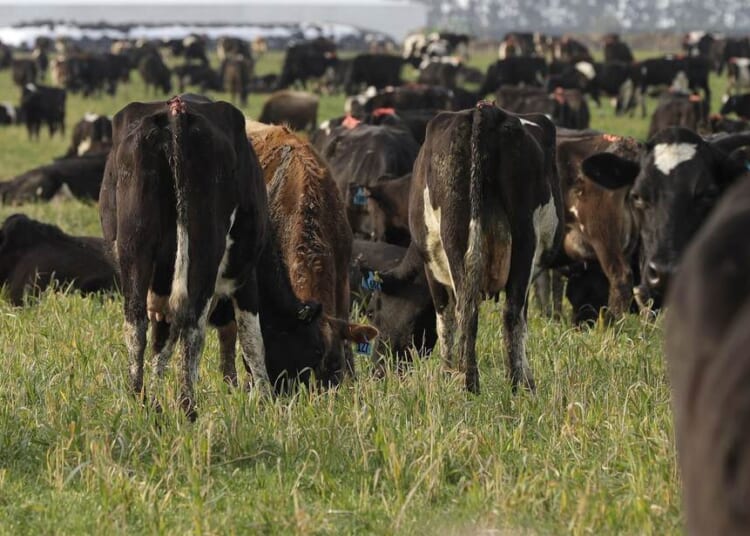I call bulls**t on this.
Cows at @UMNMorris eat an ounce of seaweed every day: “This red seaweed has been shown to reduce methane by at least 40% and maybe more” says prof Brad Heins. https://t.co/7kNJWFro8d
— U of M Research (@UMNresearch) January 19, 2024
I have nothing against scientific experimentation–even seemingly absurd studies, which occasionally reveal interesting results.
But when put in the context of addressing a fake problem, using techniques that make little sense and yield transitory and minimal results, it strikes me as bulls**t done in the service of creating propaganda for a different agenda.
That is what is happening here.
The story, from Minnesota Public Radio, is about the University of Minnesota’s research to reduce methane emissions from cows used in the dairy industry. What first struck me was the oddity that the researchers are importing from Hawaii seaweed that they claimed could reduce methane emissions by 40%.
It struck me as a bit odd to transport seaweed from around the world to do this–maybe this was an actually interesting story, or at least one I could make fun of.
It turns out to be a bit more complex–the story is actually about the need to reduce the number of cows used for meat and dairy. Because of course it is. The solution is always to immiserate people.
We have been trained to fear methane as a deadly greenhouse gas that will KILL US ALL because the EARTH IS BOILING, and the story started out with what appeared to be a hopeful spin: we can reduce methane production in cows by 40%!
Except, well, not so much. It turns out that you can accomplish this goal by importing seaweed from Hawaii, but the effect lasts about a month.
Salfer said unanswered questions include the cost of methane-reducing feed additives. Dairy farms operate on thin profit margins he said, and farmers are likely to reject costly additives.
And the microbes in a cow’s gut are not static, but rapidly evolving.
“So, when you feed these compounds, they reduce in efficacy over time. They might reduce methane production for one month. But after they’re fed for a month, the microbial population adapt.”
That would require farmers to regularly monitor methane from their cows, so they could switch feed additives if one becomes ineffective.
Imagine that. Impose on farmers an entirely new, expensive production regime that would have to constantly change, and we would need to create an entirely new industry of feed creation trying to adapt to the ever-changing gut microbiomes in cows. Sounds practical, right?
Well, even to scientists it doesn’t. So they offer another solution:
However, he’s convinced the only way to quickly limit methane is to reduce the number of cows, while acknowledging that’s a solution most Americans are unlikely to embrace.
“Can we start to think about how much milk we actually need to produce? And how much beef do we actually need to produce? We need to start having some of these tough conversations,” Lilliston said.
“Can we just do some tweaks to the current system of agriculture, and will that be enough, or do there need to be more serious and drastic steps taken?”
It always comes down to that: eat bugs, peasants.











